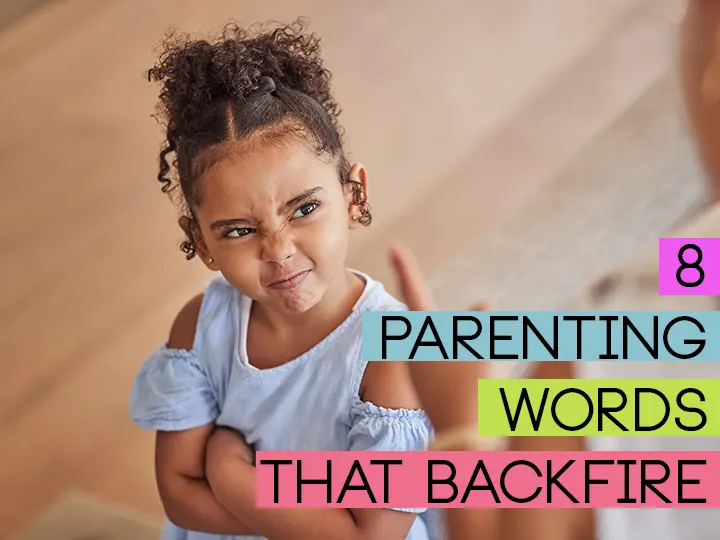
8 parenting words that backfire
"How many times am I going to say it!" We will not say...
If you are a mother or father, you must have said at least a few of these words. Research explains why these words unexpectedly backfire.
1- "Don't cry!"
It can be very tempting to tell kids not to cry because you're constantly dealing with crying, but it invalidates their feelings and teaches them not to express their feelings openly to you. Instead, try to name your feelings with something like "You're very upset/fearful/angry right now". By giving them words to express their feelings, you are both validating their feelings and giving them the language they can express themselves next time.
2- "Don't!"
"Don't run! Don't shout! Don't throw!" Research shows that whenever parents give such an order, children are less likely to stop their behavior. Children's brains are programmed to do what they hear. When you say "run", what they hear is "run". By saying "you better walk" you can express to them exactly how they should behave. This puts the order in a more positive frame as well.
3- "Apologize"
Young children are taught to apologize long before they start to feel sorry for their actions. The act of apologizing reassures adults because it's an expression of kindness, but research shows that apologizing doesn't make children into empathetic adults. Rather, it is much more productive to teach children to take action to help the person they hurt. Help the boy who destroyed another boy's block tower repair it. Have the biting child give the other child a piece of ice. By teaching our children that their actions have real consequences and require more than an empathetic "sorry", we can help them do less and become more empathetic.
4- "We don't shoot..."
Or "we don't throw" or "we don't bite" etc... This is a bit of a delicacy because the point of this phrase is to show that the child is part of a group that has rules to keep us safe. Unfortunately, for the child who repeatedly hits, bites, or displays other negative behavior, this phrase can make them feel excluded from the group. A much more productive approach would be to say "It's not good to hit" and express how it makes you or the other child feel. Then get the child to take action to make up for the damage done.
5- "See?"
It's a classic "I told you so" phrase. You told the boy not to jump on the couch, he didn't listen to you and fell off the couch, hurt. And you said, "See, I told you not to jump." This reaction embarrasses the child and does not offer him an opportunity for problem solving or self-expression. It's best to wait for the child to calm down and then talk about what's going on and ask how he or she will make a better decision next time.
6- "Don't whine!"
It's very challenging to whine. It's so frustrating that one just wants it cut off asap! On the other hand, telling kids not to whine doesn't stop them. Instead, say "I'd rather you speak properly" or "How can we fix this problem?" ask. By engaging the child's problem-solving abilities, you are giving him some authority to control the situation. You can also use parenting expert Lynn Lott's "You asked, I answered" strategy. If your child asked a question and you said "No" but continues to whine, you can say "You asked, I answered". Once the child understands this word and the word is used regularly at home, the child will be less inclined to whine, cry, or bargain.
7-"How many times do I have to say it?"
This promise backfires because it sends the child the message that you are willing to say something more than once. If the child did not give the reaction you wanted the first time, either he did not hear you / did not understand the admonition or he avoided the admonition. How you would handle this issue differs in the two cases above, but "How many times do I have to say it?" Saying this will send the wrong message and won't get your child to do as he or she is told.
8-"Wait until your father comes..."
This classic saying does two things: Fear the reaction of the absent mom/dad and send the message that you're not going to take action at the time. The consequences of young children's actions must occur in the immediate moment to be effective. Waiting for mom or dad to come home makes the result ineffective in the long run. In addition, children begin to fear the reaction of the mother or father, causing them not to come to the parent for fear of punishment when they do something wrong.